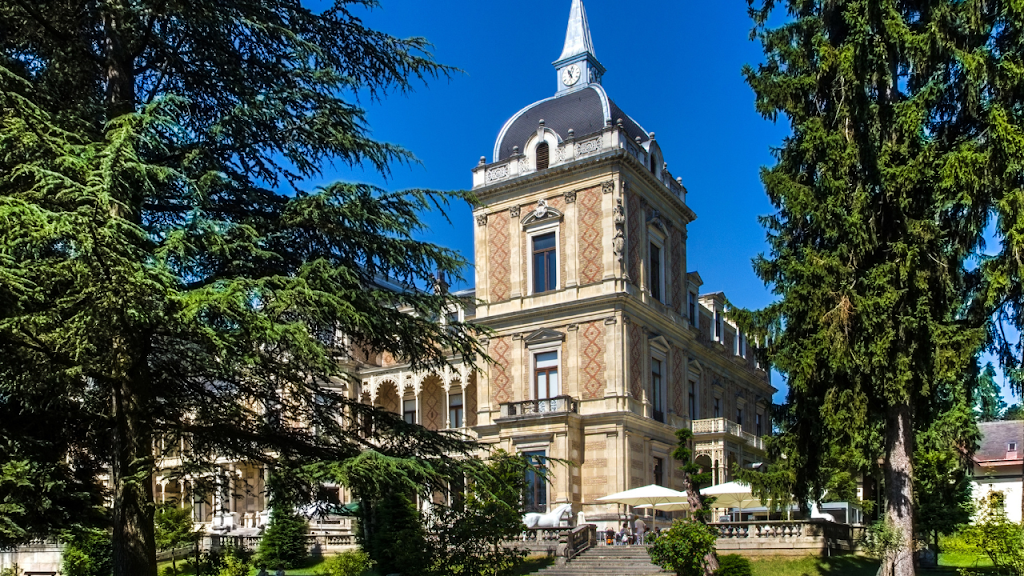Introduction to the University of Manchester
.png) |
| University of Manchester: A Comprehensive Overview |
The University of Manchester is one of the most prominent institutions in the United Kingdom, with a worldwide reputation for its contributions to education, research, and social influence. It was founded in its present form in 2004 as a result of the amalgamation of Victoria University of Manchester and UMIST (University of Manchester Institute of Science and Technology), and it has a long history dating back to the early nineteenth century. This detailed note will discuss the university’s history, academic organization, research accomplishments, campus life, and societal effect.
Historical Background
The University of Manchester traces its history back to 1824, when the Manchester Mechanics’ Institute, later known as UMIST, was established. Owens College, which later became Victoria University of Manchester, was established in 1851. These two institutions were critical to the economic and educational growth of Manchester and the United Kingdom.
- Key milestones.
- The Manchester Mechanics’ Institute was formed in 1824.
- Owens College was established in 1851.
- Owens College changed its name to Victoria University of Manchester in 1880.
- 1956: UMIST is granted autonomous university status.
In 2004, Victoria University of Manchester and UMIST merged to establish the University of Manchester.
The merger resulted in a single institution that harnessed the qualities of both previous institutions, paving the way for a period of rapid expansion and innovation.
Academic Structure
The University of Manchester is divided into three faculties, each with many schools and departments. This framework encourages multidisciplinary cooperation while also providing extensive coverage of several academic subjects.
Faculty of Science and Engineering
Schools: School of Natural Sciences and School of Engineering.
Disciplines include mathematics, physics, chemistry, earth and environmental sciences, mechanical, aerospace, and civil engineering, electrical and electronic engineering, and others.
Faculty of Biology, Medicine, and Health.
Schools include biological sciences, medical sciences, and health sciences.
Disciplines include life sciences, medicine, dentistry, nursing, pharmacy, and other related areas.
Faculty of Humanities
Schools include Alliance Manchester Business School, School of Arts, Languages, and Cultures, School of Environment, Education, and Development, School of Law, and School of Social Sciences.
Disciplines include business and management, languages, history, philosophy, sociology, education, and law.
Research Excellence
The University of Manchester is well-known for its cutting-edge research in a wide range of fields. It is a member of the Russell Group, a network of 24 outstanding public research institutions in the United Kingdom, and regularly does well in research evaluations.
Key Research Areas
Graphene and Advanced Material:
Manchester is home to the National Graphene Institute, which leads worldwide research in graphene and related materials. Professors Andre Geim and Konstantin Novoselov’s pioneering work won them the Nobel Prize in Physics in 2010.
Life Science and Medicine:
The university’s research in life sciences and medicine has a worldwide impact, including notable contributions to cancer research, genetics, and epidemiology. The Manchester Cancer Research Centre demonstrates its dedication to addressing important health issues.
Environmental sustainability:
Climate change, sustainable energy, and environmental management are the subject of research programs. The Tyndall Centre for Climate Change Research in Manchester provides critical insights into minimizing environmental damage.
Social Science and Humanities:
The institution specializes in research on global disparities, social justice, and cultural studies. The Institute for Cultural Practices and the Global Development Institute are well-known hubs for multidisciplinary study.
Campus & Facilities
The University of Manchester has one of the biggest campuses in the UK, located in the heart of Manchester. The campus combines old and contemporary architecture while offering cutting-edge amenities for students and researchers.
Key Facilities
The John Rylands Library is a historic monument with vast collections of rare books and manuscripts.
The Alan Turing Building is a center for mathematical and computer scientific research.
Manchester Museum: A cultural and educational institution that has collections on natural history, archaeology, and anthropology.
The Whitworth Art Gallery is well-known for its collections of fine art, textiles, and wallpapers and serves both the university and the general public.
Student Life
The University of Manchester offers a dynamic and varied student life. The institution provides a diverse selection of extracurricular activities, including sports groups and academic organizations, to ensure that students have a well-rounded education.
Accommodation: The institution offers a variety of housing alternatives, including catered and self-catered halls, which promotes a strong sense of community.
Student Union: One of the UK’s major student unions, providing support services and activities and advocating for student rights.
Sports and recreation facilities include the Armitage Centre, Sugden Sports Centre, and Manchester Aquatics Centre, which provide a wide range of sports and physical activities.
Impact & Outreach
The University of Manchester’s effect goes beyond academics to include social contributions and worldwide outreach. Its strategic strategy is centered on social responsibility, innovation, and public involvement.
Social Responsibility
Community Engagement: The institution regularly engages with local communities, tackling social issues via projects like the Manchester Access Programme, which helps students from underrepresented backgrounds.
Global Development: Through research and collaborations, the institution addresses global concerns like poverty, health inequities, and climate change. The Global Development Institute is at the forefront of these initiatives.
Innovation and Enterprise
Manchester Innovation Factory: The university’s technology transfer office, which helps commercialize research and fosters entrepreneurial initiatives.
Collaborations: The university has significant collaborations with business, government, and academic institutions across the globe, which enhances its research impact and provides opportunities for students and faculty.
Cultural Contributions
Public Events and Lectures: The university conducts a variety of public lectures, exhibits, and cultural events, which contribute to Manchester’s thriving cultural environment.
Heritage & Conservation: The university protects and promotes its rich history via projects such as the Manchester Museum and the John Rylands Research Institute.
Challenges and Future Directions
While the University of Manchester has achieved great achievement, it confronts the same issues as many other big institutions. These include financing constraints, the necessity for ongoing infrastructural expansion, and adjusting to the changing higher education scene.
Strategic Goals
Sustainable growth entails ensuring financial stability while growing research capacities and enhancing facilities.
Digital transformation entails using digital technology to improve education, research, and administrative procedures.
Inclusivity and Diversity: encouraging diversity and inclusion within the university community to provide equitable opportunities for all students and faculty.
Conclusion
The University of Manchester is a paragon of academic achievement, research innovation, and social influence. Its historic history, strong academic framework, and dedication to social responsibility position it as a prominent institution in the UK and across the world. As it continues to confront current issues and capitalize on possibilities, the institution remains committed to developing knowledge, advancing research, and constructively contributing to society. With a clear vision for the future, the University of Manchester is well-positioned to continue its role as a world-class university that shapes tomorrow’s leaders and innovators.

